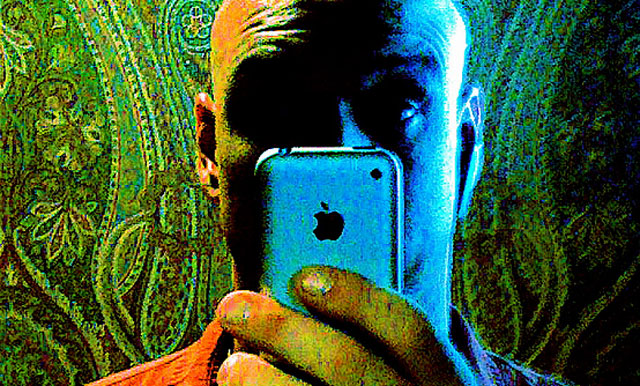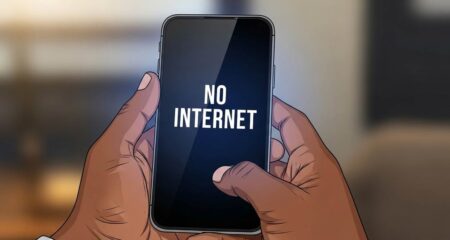
Picture this: it is Thursday evening, 8pm. You have spent the past three days working flat out on a deadline for work. But it is done now and you are finally home — kicking off your shoes and sinking into the couch with your favourite dinner.
Aaah. The long-awaited evening in. A wave of contentment washes over you. This, you think, is a perfect moment. In fact, it is so good, I should tweet it.
You pick up your phone and log on. Just one quick tweet. Then you scroll down the news feed and … what is this? Petrol prices on the rise? When? You do not want to admit it, but the Isle of Capri does look kind of amazing. Worse: you have never even been to Italy. Hang on, the Lady Gaga tickets are sold out! How on earth did you forget to buy any? And that is not all, apparently. Tim Cook says the new iPad is about to arrive. Why the hell did you just spend six grand on the old version?
Your perfect moment has ended abruptly. You feel a little queasy. You try to relax, but your mind is racing. When did it get this bad? You have an old iPad, no concert tickets, no immediate plans for overseas travel. And, to boot, you are about to pay 60c extra a litre to drive. Your life is simply not worth tweeting.
Does this scenario sound familiar? If it does, you likely suffer from the inexplicable Fear of Missing Out (Fomo). But do not worry. You are not alone. And it feels kind of good to give it a name, doesn’t it?
Diagnosing a Fomo-be
Here is the official definition, according to a 2012 JWT Intelligence report, the New York-based marketing company that tracks trends. Fomo is “constant anxiety over missing out on something important”. You may not know of anything specific you are missing out on, but you still fear others are having a better time.
Put another way, if you:
- Post photos on social media of something you have eaten
- Have a blog detailing your personal “life and times”
- Look at your phone at a dinner party, say “sorry”, and then do it again 10 minutes later
- Are on Twitter
then you’re probably a Fomo-be.
Reassuringly, Fomo did not come from nowhere. It is a “consequence of people buying into a discourse that ‘more is better’”, according to clinical psychologist and University of Johannesburg lecturer Elsabe Jordaan. It is an acceptance of capitalism that is “seeping into every aspect of our lives”.
True to its capitalistic roots, Fomo is very self-centred.
According to Professor Sonja Verwey, head of the department of strategic communication at the University of Johannesburg, it is part of an “exhibitionist mentality” that is fostered by social media — and, let us be frank, sites such as Facebook, Instagram and Twitter that allow people to showcase their lives like never before.
According to JWT, in broadcasting our behaviour online, we “engage in social one-upmanship” and instil a “sense of missing out” in others.
“I guess there is an agitation that I experience when I am alone. I will sit in my own space and start talking to mates, texting or Facebook. I would then have the urge to engage in social activities because my friends are having fun,” 29-year-old Thembi says.
JWT would say that Thembi is experiencing “relative deprivation” — the feeling we get when we compare our position with others — and believe that we have less.
To keep up with the Joneses, digitally speaking, we have become consumers who are “always on”, according to Verwey. When is the last time you went for four hours without looking at your smartphone?
More is less
Although we are more “connected” than ever, our social habits are defeating our aims, according to IBM and Motorola marketing strategist Dan Herman in an article on his website. Rather than filling an emotional gap, the increased interaction spurred by Fomo is actually making people lonelier.
Sadly, today’s consumers may be good at connecting, but they are not good at relating. Our “sense of community and belonging is restricted to broad but superficial participation in communities”, says Verwey.
To fight this lack of fulfilment in relationships, we up our connectivity and thereby fuel our own dissatisfaction.
The long and the short of it: we do not want to be shallow, but we are trapped in a self-defeating cycle trying to escape it. As Thembi puts it: “You become estranged from yourself. You relinquish control to your surroundings.”
Although Fomo has shaped a more shallow understanding of the world, according to SA media consulting veteran and GSM Quadrant CEO Gordon Muller, there is an upside. We are now “more adept at handling information” than ever before.
The Fomo consumer “places a lot of emphasis on being informed and involved in any purchase decision they make”, Verwey says. Our increased involvement has empowered us to “take control” of our relationships with brands.
And the role of the marketer has shifted now that the consumer wears the pants.
In some ways, it is high school all over again. Think of us, the consumers, as the best-looking member of the rugby or soccer team. Brands are falling over their feet to get our attention, because we have so many options we could always move on.
“Just flashing an ad is not enough anymore,” Muller says. “If you communicate rubbish, they’re going to cut you out.” To connect with the consumer, “brands are looking for reciprocal engagement. They want [buyers] to say ‘I choose to watch, I choose to touch, I choose to research this product’.”
If this is sounding a little like the recurring storyline from the High School Musical series, it is. Advertisers are courting us like a high school crush in an effort to forge a “connection.”
Some may find it disconcerting that, in our socially mediated world, our most meaningful relationships are now being offered by sales people. But we might as well get used to it. This, fellow Fomo-bes, is the strange world of the fear-driven consumer. — (c) 2012 Mail & Guardian
- Visit the Mail & Guardian Online, the smart news source
- Image: CJ Sorg/Flickr




